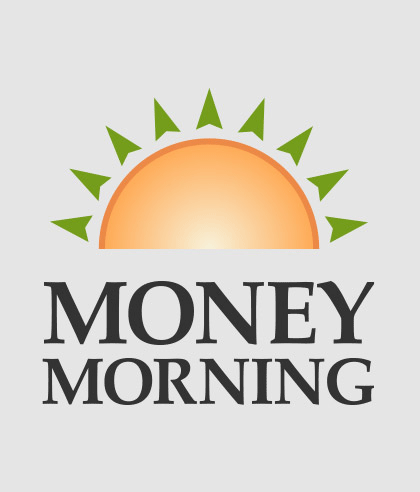
The chance to make 700% gains on a stock doesn't come around every day. And when it does come around, you have to act. That could very well be what we're seeing with Starlink stock, a potential space IPO from Elon Musk.
You see, Tesla shares are up a whopping 700% this this year alone, so Musk knows a thing or two about making shareholders money on big tech breakthroughs.
The Tesla CEO recently said that Starlink, his low-cost "space Internet" satellite system, could be his next big IPO. And now, there's growing interest in whether Starlink stock is worth buying.
This would be a spin-off from SpaceX. We've wondered whether a larger SpaceX IPO would be in the picture. But from what we know, that could be further in the future.
Starlink, on the other hand, is closer to being its own publicly traded company.
Since a Starlink IPO could be a once-in-a-generation opportunity, we want to make sure you're fully prepared for it when it gets here...
The Case for Starlink Stock
Tesla is the only publicly traded of three major Elon Musk ventures. The others are SpaceX and The Boring Company.
These would make blockbuster IPOs, but so far Musk hasn't pushed them toward public markets.
That's not the case for Starlink. He said that Starlink was most likely to go public as a spin-off of SpaceX.
Musk said he hopes to take Starling public as soon as growth looks "consistent" enough.
Starlink, developed by SpaceX, is close to being a consistent, profitable business model.
These are not insanely "new" takes on rockets or cars. They are simply compact satellites that provide Internet from low-earth orbit. And SpaceX already plans to have about 1,500 of them in space by late 2021. It also has over 40,000 more satellites approved by the FCC.
In February 2017, papers were leaked showing that Starlink satellite constellation was expected to rake in $30 billion in revenue by 2025. That would be six times what the company expects from its rocket launch business ($5 billion).
One of the goals of this company is providing a universal Internet reaching places that have had limited service previously. This is by providing thousands of low-earth orbit satellites in a "web" around the globe. The company anticipates that the 1,500 satellites expected in the next year or two will suffice for "moderate" coverage.
WARNING: It's one of the most traded stocks on the market every day - make sure it's nowhere near your portfolio. WATCH NOW.
Another goal of the company is to manufacture small, effective satellites at low cost. Similar to how SpaceX was the first to enable re-use of rocket boosters - instead of building a new one with each launch to cost millions - Starlink aims to make its satellites cost less per unit of capability.
It looks like Starlink is making inroads with potential clientele as well, namely the U.S. government. The company won $900 million in FCC subsidies from the Rural Digital Opportunity Fund (RDOF) on Dec. 7, 2020. In return, it will provide Internet to over 600,000 rural homes across 35 states.
SpaceX is still competing for $11.2 billion more from the fund. That will be dished out in phases over the next few years. The effectiveness of Starlink satellites and its manufacturing model makes the company a prime contender.
Starlink has been the cause for four Falcon 9 (SpaceX rocket) missions. It launched a total of 240 Internet broadband satellites with those. Elon Musk has thrown out that he would like to get as many as 42,000 satellites in orbit.
In the end, SpaceX is still a company that likes to "tinker" as space is such vastly unexplored market. With several space technology and exploration arms in the company, there is not really a "cut and dry" revenue stream.
But if we look at Starlink by itself, future profit is more tangible.
The most striking difference between SpaceX and Starlink is this. While SpaceX lowers the cost of flying to space, Starlink could potentially lower the cost of producing a common good: the Internet.
It could potentially earn revenue on a subscription basis. And that userbase has plenty of ceiling over time.
There is good reason to believe Starlink is the prime candidate for FCC funding. And there is much more ground to cover worldwide with the Starlink constellation.
For that reason, a Starlink IPO could be like buying Tesla at $40.
Why Tesla May Plateau
Tesla stands at the edge of an electric and autonomous vehicle revolution. The company reached five consecutive quarters of profitability as it delivered a record 139,000 vehicles in 2020.
Still, those 2020 Tesla gains could be the last of that size for a while. 2021 will be the year several other carmakers - bigger, more established ones like General Motors Co. (NYSE: GM) and Ford Motor Co. (NYSE: F) arrive with their own electric vehicle lineups (Hummers and Mustangs, respectively.)
Toyota Motor Corp. (NYSE: TM) has plans for the market as well, once a leader in the sustainable car movement with its popular Prius hybrid.
Competition will be tougher for Tesla. And its product will eventually cease to be a novelty as the company tries to meet its "public company duties." In Elon Musk's own words, "engineering, design, and general company operations" will take precedence over innovation.
This "innovation plateau" is typical for a first-mover in any industry. Elon Musk considered avoiding it back in 2018.
Over social media, Musk toyed with the idea of taking Tesla private and saying he had "funding secured." The U.S. Securities and Exchange Commission ended up suing Musk for "misleading investors," arguing that he had no deal in place.
More recently, only a day after Christmas, Musk followed up on those comments. He said it was now "impossible" to take Tesla private.
He is right. Tesla's market cap is now over $680 billion. The machine is running, and there is no turning back to tweak anything behind closed doors.
Tesla stock is too expensive to hope for money-doubling gains anytime soon. However, if you want to make money from an Elon Musk enterprise, you could have your chance in 2021 with Starlink...
The Complete List of Best (and Worst) Stocks for 2021
Wall Street insider Shah Gilani says 2021 could be a gold mine for Americans.
He's showing his subscribers exactly which stocks to buy and which to sell.
But you're getting it all for free - no sign-up or credit card required.
Prices, tickers, and company names will be coming your way fast.
Follow Money Morning on Facebook and Twitter.
About the Author
Mike Stenger, Associate Editor for Money Morning at Money Map Press, graduated from the Perdue School of Business at Salisbury University. He has combined his degree in Economics with an interest in emerging technologies by finding where tech and finance overlap. Today, he studies the cybersecurity sector, AI, streaming, and the Cloud.



